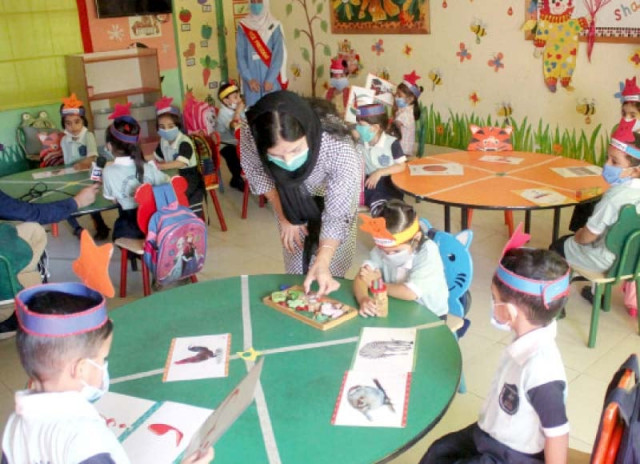The need for engaging classrooms
The environment of such a classroom, where the teacher operationalises his power, hampers independent thought process

Advancement in educational research in the areas of curriculum, instruction and assessment has brought transformational changes inside classroom and beyond. Studies suggest a strong relationship between engaging classroom practices and students’ learning outcomes, as activity-based teaching enhance students’ knowledge, skills and disposition. On the other hand, disengaged classroom with little activities does not help children in developing socio-emotional and broad-based academic learning experiences.
One of the main reasons behind poor classroom performance is the lack of understanding about teaching methodologies and classroom dynamics. Discussed here are three major educational philosophies around which the entire teaching-learning process revolves. These are: informative or conventional view of education; reformative or modern view of instruction; and transformative or post-modern view of curriculum.
The informative philosophy is a conventional approach of education to impart knowledge. Under this paradigm, classrooms are highly disciplined and controlled. Children’s opinions and interests are not taken into account under this philosophy and they are rather dictated; and ‘do this’ and ‘don’t do that’ is the norm of the classroom. The environment of such a classroom, where the teacher operationalises his power, hampers independent thought process.
Next, the reformative paradigm is aimed to break the curriculum status quo. It is a shift from transmission to transactional mode of instruction through which teaching is carried out in an interactive way by involving children in the lesson. However, even under this modern paradigm, students can’t develop their thinking skills, and only their application and analytical skills get nourished.
Lastly, transformational paradigm, also known as post-modern philosophy, emphasises on a complete change in the learners’ behaviour by providing the highest level of emancipation. The learners not only monitor their own learning but also cooperate with each other in resolving problems and become lifelong learners. The methods, strategies and techniques under this approach are based on inquiry; cooperation and collaboration; participation in debates, dialogues and discourse; and project and research work. These elements are considered instrumental in attaining educational outcomes.
Unfortunately though, most of the educational institutions in our country are still using the conventional teaching philosophy in classrooms which is monotonous, uninteresting and boring for students. As a result children’s critical, creative thinking and problem-solving skills remain in dormancy. Resultantly, majority of students graduating from educational institutions are devoid of the knowledge and skills required in the job market at national and international levels.
Empirical studies point out that the teaching-learning process can be transformed by engaging competent and committed pedagogical principals/heads in schools who could provide enabling teaching-learning environment. Besides, acknowledging the efforts and inherent talent of teachers and celebrating their achievements also help a great deal towards igniting passion and curiosity in task accomplishment which ultimately help the teaching-learning process.
The journey of transformational changes in schools needs a rigorous process that would initially commence from merit-based teachers’ induction; nurturing their capacity incessantly; and empowering them to exercise their intellectual and professional capability to enhance students’ learning outcomes. Furthermore, provision of adequate perks and privileges to teachers; allocating adequate financial resources for school improvement; and creating conducive learning environment are key to attaining goals at individual and organisational levels. Principals should also be held accountable for students’ learning outcomes as well as for ensuring transparent budget spending.
Published in The Express Tribune, September 6th, 2021.
Like Opinion & Editorial on Facebook, follow @ETOpEd on Twitter to receive all updates on all our daily pieces.














COMMENTS
Comments are moderated and generally will be posted if they are on-topic and not abusive.
For more information, please see our Comments FAQ